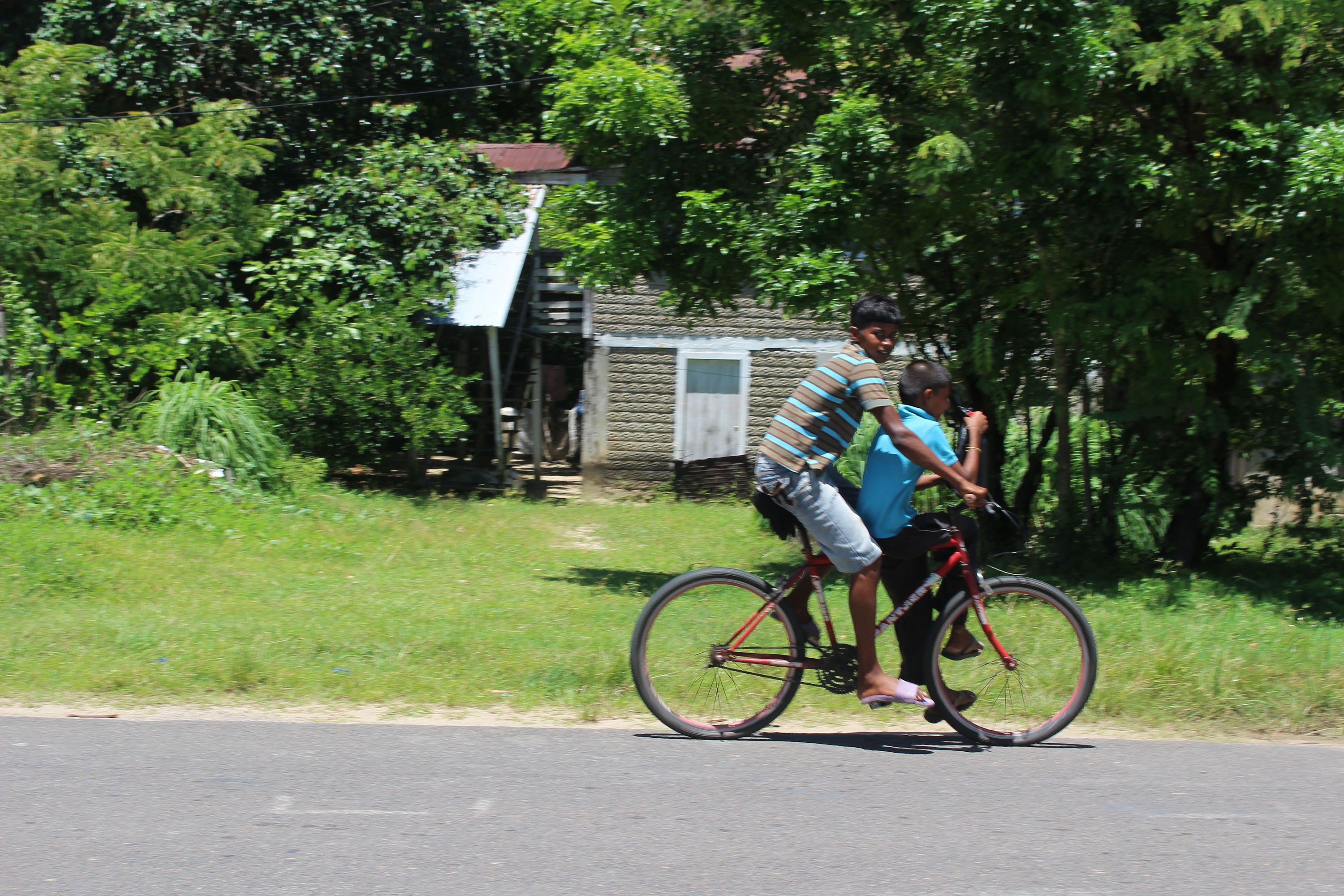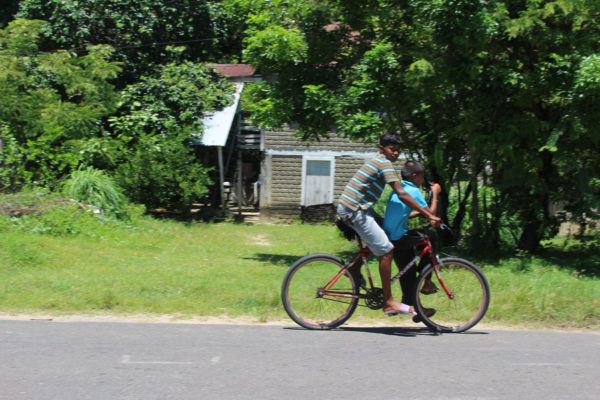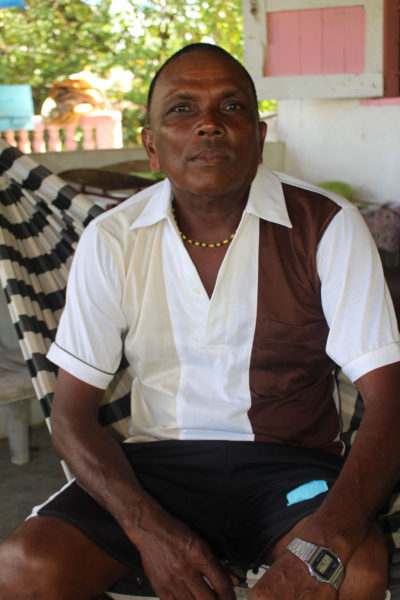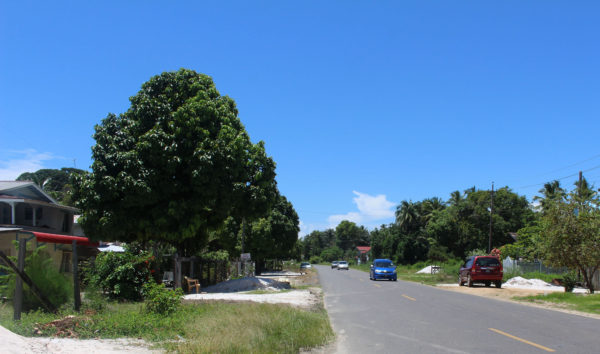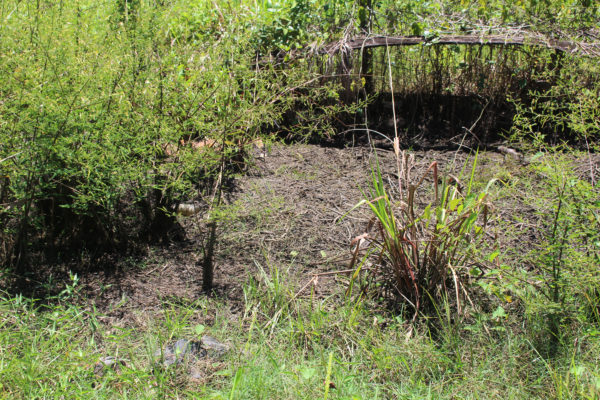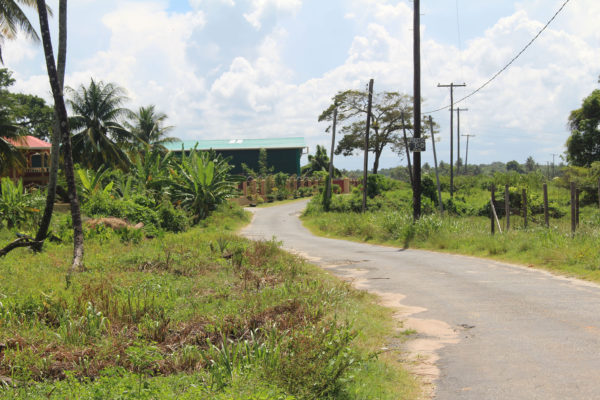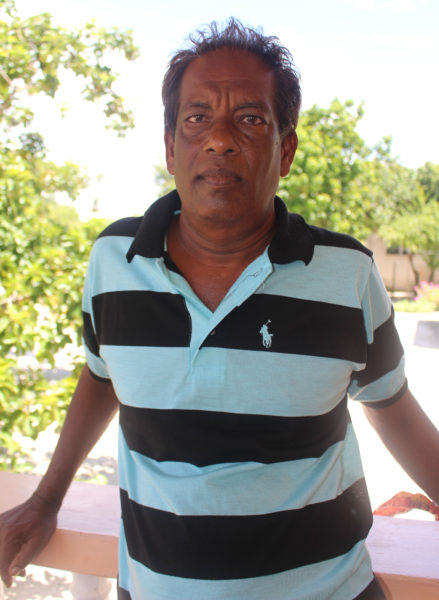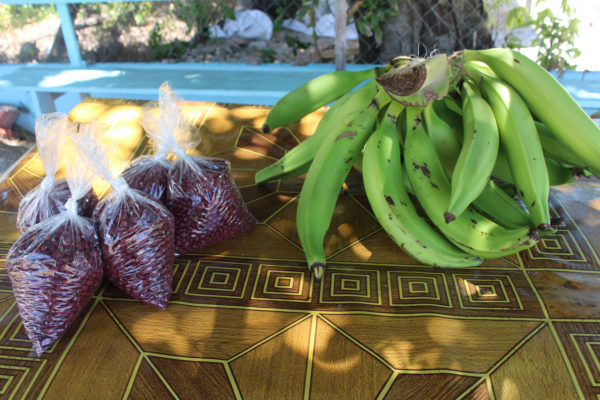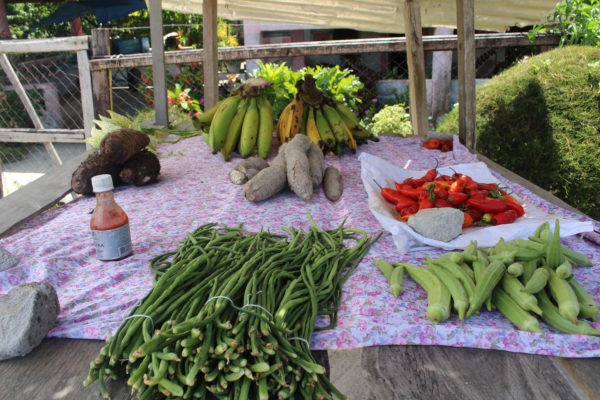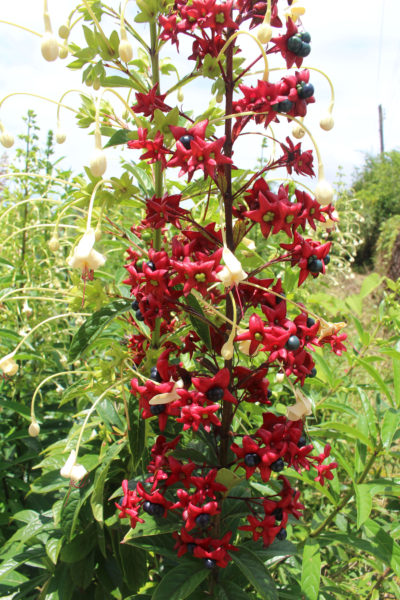Photos by Joanna Dhanraj
Reggae music blared from a house and a few young men sat under a tree chatting, otherwise Airy Hall on the Essequibo Coast seemed super quiet. This was so because many persons were attending a wedding a few villages away, while others were in Airy Hall Estate either celebrating at a wedding or consoling the family mourning the loss of a loved one. This provides a perfect image of the people of Airy Hall; not just peaceful but also supportive whatever the cause.
The village sits snugly between Riverstown and Adventure and has a population of approximately 2,000. It is divided into two sections, Airy Hall Public Road and Airy Hall Estate.
One of the first residents to talk with us would turn out to be Bash Narine, a former village councillor who served for 15 years (1999 – 2015) and also the former chairman of the Riverstown/Annandale NDC serving from 2006 – 2015.
Having born at Huis T’ Dieren, Narine grew up in Airy Hall as his parents moved there when he was still a baby. Airy Hall, he said, differs from other villages because its people are always busy at work even when it’s not necessary. “Airy Hall got very nice people. Most people in Airy Hall are friendly, peaceful and quiet. People here have extra yard space and they take up whatever extra time doing gardening or rearing animals so they’re always kept busy,” Narine said.
“We have a rice mill and auto sales [company] owned by Arnold Sankar, a lumber yard owned by N. Singh, a mandir, a few churches and a Banks DIH Outlet.
“In the past we [children back then] faced a lot of struggles. We work very, very hard with our parents. We had little schooling. As children you got to go and plant rice, you had to cut rice with grass knife.
“It was my mother and father and six of us siblings toiling in the backdam every day; sometimes for three months straight every day. Crop was two times a year.
“We never had combines like now; we used bulls. We bought them when they were young and trained them. Now times different; it got machines to do work on the farms and the children can go to school.”
According to Narine it’s rumoured that Airy Hall Estate was owned by a man named Thompson while the rest of Airy Hall was owned by private farmers. In time, other private farmers leased land for farming purposes and eventually they started to sell out.
For Narine, his village has come a long way but he still sees room for development. He would like a recreational centre for the youth so they can take some time off from gardening or farming and for the other boys liming on the street corner or playing cricket in the street.
“We need street lights. We need a wider road. We need better drainage and for the access dams leading to the farms to be looked into,” he advocated.
Latchman Persaud aka ‘Plantain Man’ moved to Airy Hall some 30 years ago. He is a small-scale farmer. Being a rice farmer, he said, is getting harder because although he is producing paddy, the price isn’t right. Apart from rice he also plants plantain, bora, boulanger, squash and pumpkin and sells the surplus from his donkey cart or the little stall in front of his house.
“Money not circulating right now. Business really slow in Airy Hall, not only in Airy Hall alone, the whole Essequibo,” Persaud said.
Lutchmin Seiram was born in Airy Hall. “Back then was a little road; was loam. We didn’t had vehicles. People move with donkey carts or walk. People then were really nice; they still nice today,” Seiram said.
She sells provision and greens. She buys and sells back but years ago, before the passing of her husband, they farmed on an island oblique to the coast called Hamburg. They planted and sold ground provision, fruits and vegetables then. Since then, she said, business slowed.
Sieram recalled her girlhood days, “I went to the Riverstown Primary. Sometimes I went in the backdam with my parents. I finished school but then you never had anywhere else you could go and further your studies. My sister, when she finished school, did a typewriting course. She used to type ninety words per minute but she couldn’t do anything with whatever she learned because [there were no jobs] she could have gone to here. Back then, parents used to want to marry you out. When they talk, you listen. You ain’t want to know what will happen if you didn’t listen; not like nowadays children.”
Though employment rate has grown it is still low and Sieram believes that some sort of industry would be of benefit to the village. “A factory would be nice. Even if you can’t do something, you must learn to do something; half day work or something. Airy Hall has Banks DIH but not much work except for the security guards and the truck drivers. If they put up something here the village would benefit from it,” she said.
Truck driver, Mohan Ramnarine said Airy Hall is a relatively nice place to live but as a driver on the coast he finds it difficult to get his work done. He works with Caricom Rice Mill, Hacks Rice Mill and Wazir Hussein on the Essequibo Coast, transporting rice for them.
“There was one ferry working for 60 years now called the Malali and later they brought in Kanawan and Sabanto,” he said.
Recently the wharf at Good Hope was damaged in an accident with the Kanawan. According to Ramnarine, a truck was allowed 30 tonnes, but since the recent incident, trucks are only allowed 13 tonnes. In addition only four trucks can board the boat, down from the 20 previously allowed. Drivers are forced to wait in line. Since the incident, Ramnarine’s day trip has turned into overnight waiting at the wharf for his turn sometimes as long as six nights. He’s infuriated with the slothfulness of the system and wants immediate measures to be taken.
Apart from that, Ramnarine said, the residents of Airy Hall live in the comfort of having just about everything up to date. However, street lights and a cinema would be a great addition for the village, he said.
